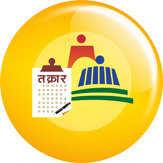 Grievance Redressal in Co-operative Housing Societies by none other than Shri Devendra Fadnavis Chief Minister, Government of Maharashtra https://aaplesarkar.maharashtra.gov.in/en/ J.B.Patel (Jeby) RTI & Housing Societies’ Activist Mobile:9820538570 FIGHT FOR YOUR RIGHT !
Grievance Redressal in Co-operative Housing Societies by none other than Shri Devendra Fadnavis Chief Minister, Government of Maharashtra https://aaplesarkar.maharashtra.gov.in/en/ J.B.Patel (Jeby) RTI & Housing Societies’ Activist Mobile:9820538570 FIGHT FOR YOUR RIGHT !
Month: April 2015
If the Auto Industry Operated Like the Vaccine Industry…
This animation reveals the absurdity of the vaccine industry’s legacy of harmful products and absolute legal immunity from liability.
The pesticides WHO classifies as ‘cancer causing’ are used widely in India.
Five popular brands of chemical pesticides – Glyphosate, Parathion, Malathion, Diazinon and Tetrachlorvinphos – that the research arm of the World Health Organisation (WHO) categorized as ‘probable or possible carcinogenic’ are widely used in India.
While the report has triggered a massive debate in Europe and America on the need to regulate or ban these pesticides, it has been simply glossed over by policy makers, scientists and environmentalists in India. For a country which spends more time discussing pedestrian issues, health and environment are far away from national concerns. If you are dealing with pest at your house and don’t want to use all those pesticides that have harmful chemicals then hire Pest Control Company in Carlisle.

The International Agency for Research on Cancer (IARC) at Lyon, in France, has categorized the most popularly used herbicide Glyphosate, which comes branded as Roundup, as ‘probably carcinogenic to humans’. Two of the pesticides – Tetrachlorvinphos and Parathion – have been classified in the 2B category and rates as ‘possibly carcinogenic to humans’ while three other chemicals – Malathion, Diazinon and Glyphosate – as ‘probably carcinogenic’ and put in the category 2A. These are all organophosphates.
In India, while Roundup is the most popular used herbicide, Methyl Parathion, Malathion and Diazinon too are widely used in agriculture. Tetrachlorvinphos is approved for flies and ticks. Interestingly, many of the chemicals are approved for restricted use, knowing very well there is no way to check its actual application. Take for instance Methyl Parathion. Its use is banned for fruits and vegetables, and also for crops where honeybees are acting as pollinators. How can the Central Insecticides Board expect farmers to make a distinction between honeybee pollinating crops and other when applying Methyl Parathion?Similarly, Diazinon is banned for use in agriculture except for household purposes. Is there any way to police the farmers after they have purchased the chemical from the market? How will you know, given the educational standard of Indian farmers, whether they read the fine print on the pesticides container and apply accordingly? Take Methyl Parathion use in fruits and vegetables. It is officially banned, but it is widely known that traders dip certain vegetables in Methyl Parathion solution as it provides shine to the veggies.
The pesticides registration process therefore is a sham. Since it escapes public scrutiny, I haven’t seen the working of the Central Insecticides Board ever come under the scanner of the investigating agencies.
Some 860 pesticides are registered for use in India. As many as 67 pesticides banned in other countries, are being used in India.
There is a strong lobby in favour of chemical pesticides, and every time environmentalists question the need for some of these pesticides on health and environment grounds, a court case is often slapped. So much so that film star Aamir Khan too was served legal notices after his show on pesticides inSatyamev Jayate. Nevertheless, I still remember a study published by Dr David Pimental of the Cornell University in the late 1970s wherein he estimated that 99.9 per cent of the pesticides go into the environment and only 0.1 per cent of the pesticides hit the target pests. I had always wondered why this study was never taken seriously by agricultural scientists knowing very well how toxic these chemicals are.
The International Rice Research Institute, in Manila, the Philippines, too showed in early 2000 that pesticides on rice in Asia were ‘a waste of time and effort’. The IRRI study showed how farmers in Central Luzon province of the Philippines, and in Vietnam, Bangladesh and India were producing a bumper rice harvest without using chemical pesticides. Even this report was never taken seriously by the Indian Council of Agricultural Research (ICAR), the umbrella organization for farm research in the country. And when I hear Ajay Vir Jakhar, president of the Bharat Krishak Samaj say that pesticides use in wheat has gone up by 300 per cent, a crop which is generally considered to be hardy not requiring much application of chemical pesticides, it clearly shows how ruthlessly harmful pesticides are being promoted.
Genetically modified (GM) crops have further pushed the application of chemical herbicides through the spread of herbicide-tolerant crops. The WHO report should therefore be used as a loud warning, and immediate corrective steps are called for. We can ignore the warning signals at our own peril.
RBI cautions on ‘All Bank Balance Enquiry’ App
Principal Chief General Manager
Cyrus Todiwala on GM foods
Ranting about what we know about GM food and soya at Abergavenny Food Festival, September 2012
[Genetically modified foods (or GM foods) are foods produced from organisms that have had specific changes introduced into their DNA using the methods of genetic engineering.].
Save the Internet
Gold and SilverRates as on 31.03.2015
A Guide to Right to Information Act, 22 of 2005
Important for all Internet Users in India

- Should OTTS be licensed? If yes, under current rules or new ones?
- Should we leave net neutrality undecided and let the market decide its fate?
How Consultatiuon Process Works
- 1 GB data for Rs 252 + Rs 50 for Google + Rs 25 for facebook and so on.
- 1 GB data pack would be like the base pack of your DTH.
